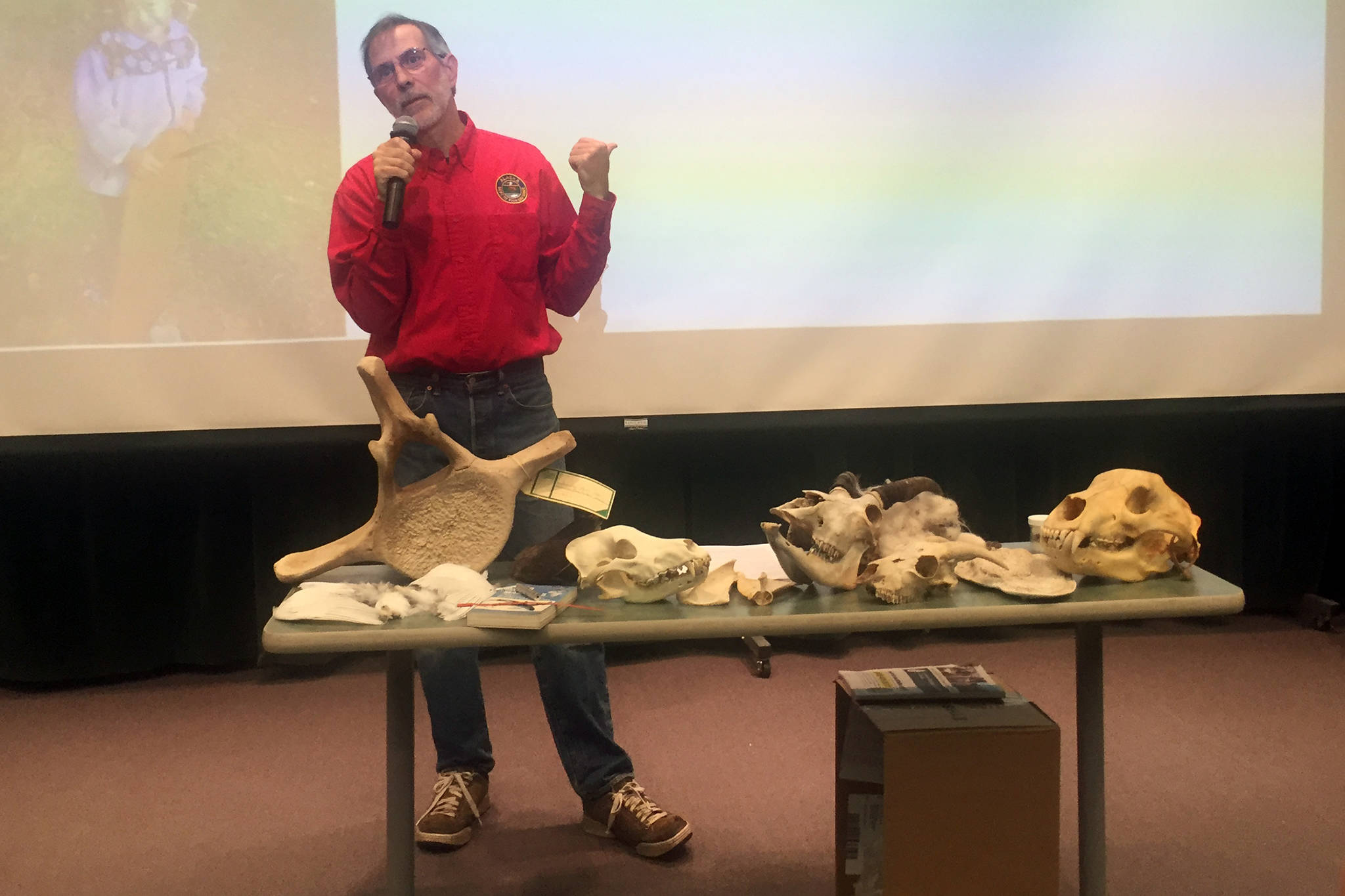When stumbling upon the bones, skulls, antlers or feathers of dead animals, there’s a few considerations one should make before pocketing them.
Riley Woodford, Alaska Department of Fish and Game Information Officer, explained the rules Wednesday night at the University of Alaska Southeast Egan Lecture Hall, as a guest speaker for Alaska Wildlife Alliance Southeast Chapter’s Wildlife Wednesday series.
He outlined which animal parts are legal to keep in Alaska, according to federal and state law.
Parts belonging to terrestrial mammals are fine to collect, Woodford said, except when those parts are found on National Park Service land. He said be careful around fresh kill sites or bear or wolf prey that has been buried in the ground. Predators are known to bury half-eaten prey in the ground until they’re able to return it to.
Woodford said parts belonging to a dall’s sheep or brown bear must be sealed by management officials.
Woodford said humpback whale parts are also fair game, at least when they’re from healthy stocks like the ones that frequent the Inside Passage in the summer. All humpback whale parts must be registered with the National Marine Fisheries Service, he said.
Sea mammal skins belonging to walrus and sea otter are off limits to non-Natives, Woodford said. However, non-Natives may takes “hard parts” from them when found on the beach or within a quarter mile of the beach. Those parts must also be registered with the US Fish and Wildlife Service.
Woodford said songbirds may not be scavenged, including the commonly-seen raven or Steller’s Jay. Feathers from lawfully hunted waterfowl and state-managed upland game birds, however, are fine to keep.
• Contact sports reporter Nolin Ainsworth at 523-2272 or nainsworth@juneauempire.com.

